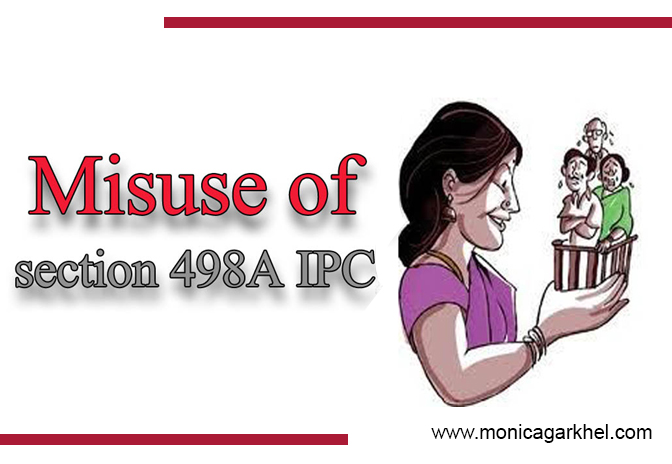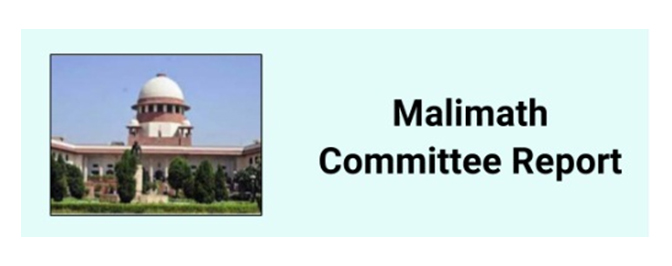The rituals and traditions have significantly shaped the country’s culture throughout India’s history. Marriage is a sacred social institution, yet it has seen radical transformations in the previous several decades. Historically, paying a dowry was seen as a blessing in Indian society. Finally, however, it reached a dangerous shape and became a scourge for civilisation, with women particularly vulnerable to its evil side. Over time, it became a justification for men’s aggressive behaviour against women.
Act 46 of 1983 included Section 498A in the Indian Penal Code, 1860. Recent years, however, have shown that women are abusing Section 498A of the Indian Penal Code for their ulterior motives. Moreover, the contemporary situation for men is complicated by this subsection because of the discrimination they face.
What does Section 498A Mean?
According to Section 498A, a woman who suffers abuse or cruelty at the hands of her husband or a member of her husband’s family has a right to file a complaint against them and then face a maximum sentence of three years in jail.
As used above, “cruelty” refers to any act of physical violence that drives her to consider suicide or compels her to engage in illegal behaviour. Based on these definitions, it seems that cruelty is an abstract concept. No Act provides a clear legal definition of cruelty. It may take many forms and is influenced by various variables, including the woman’s family history, mental and physical characteristics, social and cultural milieu, etc.
Purpose And Misuse Of Section 498A
This section addresses an extraordinarily contentious problem by limiting relief under this provision to female victims. While Section 498-A of the Indian Penal Code (IPC) of 1860 was initially enacted to protect wives from their abusive husbands and their male relatives, it is now often utilised in a discriminatory manner.
The purpose of the division is to reduce or eliminate occurrences of criminality connected to dowries. However, there has been a rise in the abuse of this clause against innocent spouses in recent years. Some wives cite their distaste for their spouse’s relatives or their husband as justification for filing a complaint against these individuals.
The Malimath Committee Reports:
The Malimath Committee recommended these changes after witnessing the rampant abuse of provisions meant to protect women from crimes committed against them:
- The accused cannot be forced to testify against himself and has the right to remain silent.
- He is aware of his rights as a citizen of the country.
- He will be punished only following the proofs provided to the Court.
- A thorough police investigation must be conducted before he will be charged with the crime.
There should be a reorganization of criminal offences, the committee said. The committee’s primary mission was to determine whether the IPC needed to be revised; however, it did not identify any such need. Instead, it proposed modifications to the criminal classifications and tried to bolster citizen rights.
Example Of Misuse Of Section 498A
A woman who has been married to a man and does not like him may have him jailed by filing a complaint under section 498A.
The Malimath Committee worked to rectify the situation, hoping to provide a more secure future for those wrongfully convicted of crimes.
The Court ruled in one instance that the rules were being abused and exploited to the point that they were undermining the institution of marriage, which was bad for society.
Where Does This Occur Predominantly?
Highly successful women use section 498A in metropolitan areas to live independently, away from their husbands and their families, as soon as the husband’s family gives in to her demands, which often include financial or material support.
Since it is sexist and may easily be twisted into something repulsive, this part has earned the stigma of genuine fear-based oppression.
There is a wide range of possible explanations for why a woman could accuse her spouse of “cruelty,” but some of the most prevalent include:
- Extramarital relationships of women- If a married woman has an extramarital affair or rekindles an old flame with someone else, she commits adultery. She wants to get rid of her husband.
- A fraudulent marriage is when a woman marries a man only for his money or possessions and then decides she no longer wants to live with him.
- Custody of children – when a mother seeks to deny the father visitation rights with his minor children
If a woman falsely accuses her husband of dowry crimes, she may utilise this provision to justify a request for alimony and have him pay her legal fees and court costs even if he has not tortured her.
Real-Time Examples Of The Misuse Of Section 498A
Such instances of false claims are all too common. This is the case of Jasbir Kaur v. State of Haryana, where the wife refused to give up her husband’s arrest. Instead, she tried all she could to save her deteriorating marriage.
Similarly, in State vs. Srikanth, the whole husband’s family was dragged into the case due to improper use of the provision, even though they had done nothing wrong.
Protection Of Innocent Victims Against the Misuse of Section 498A
According to the National Crime Records Bureau, more than 94% of all Section 498A cases are fabricated and have no bearing on the husbands’ legal situations.
In addition to the recommendations made by the Malimath Committee, it is crucial to keep in mind the following for the safety of victims caught in this case:
The trial of criminal cases, especially those of a severe nature, can take longer, depending on the severity of the crime. However, a speedy trial is recommended such innocent victims who have fallen prey to Section 498A may seek relief as soon as possible.
Therefore, it is of the highest significance that the judicial system, in addition to being practical, makes every effort to speed up the trial process concerning the 498A cases.
It is also essential to ensure that the investigation into 498A cases is handled exclusively by civil authorities and that the police officer’s actions are based only on the discovery of reasonable evidence, enough to demonstrate the individual’s wrongdoing.
Since this part lacks the deterrence factor for which the dowry cases are developing at such an alarming level, the Court should begin imposing penalties, and strict steps must be taken against the person for bringing false claims.

